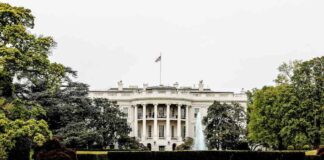Federal law enforcement officials conducted a raid on the home of Shayne Coplan, the CEO of Polymarket, a popular prediction market. Polymarket gained attention during the U.S. presidential election for accurately predicting Donald Trump as the likely winner, attracting billions of dollars in bets.
The raid, confirmed by a Polymarket spokesperson, involved the confiscation of Coplan’s phone and other electronic devices. However, Coplan has not been charged with any wrongdoing. Reports from The New York Post and Axios indicated that the U.S. Department of Justice is investigating Polymarket for allegedly allowing U.S. users to access the platform.
In response to the raid, a spokesperson for Polymarket accused the outgoing administration of political retribution, claiming that the market accurately predicted the 2024 election results. Despite a previous settlement with the U.S. Commodity Futures Trading Commission in 2022, which required Polymarket to block U.S. users, some Americans were still able to trade on the platform using virtual private networks (VPNs).
The use of VPNs by Americans to access Polymarket raises questions about the effectiveness of the ban on U.S. users. Attorney Aaron Brogan noted that while there should be limited user overlap between Polymarket and U.S.-regulated prediction markets, anecdotal evidence suggests that VPNs have enabled individuals in the U.S. to participate in trading on Polymarket.
Despite the ongoing investigation and regulatory challenges, Coplan appeared to be unfazed by the raid, displaying a sense of humor in a post later in the day. The situation continues to evolve, with updates being provided by Polymarket and additional information being released to the public.
As the story unfolds, it highlights the complexities of regulating prediction markets in an increasingly interconnected digital landscape. The use of VPNs to circumvent restrictions poses challenges for enforcement agencies, raising concerns about compliance with existing laws and regulations in the emerging field of online prediction markets. The implications of this case extend beyond Polymarket, shedding light on the broader issues surrounding online platforms and their interaction with regulatory frameworks.

















